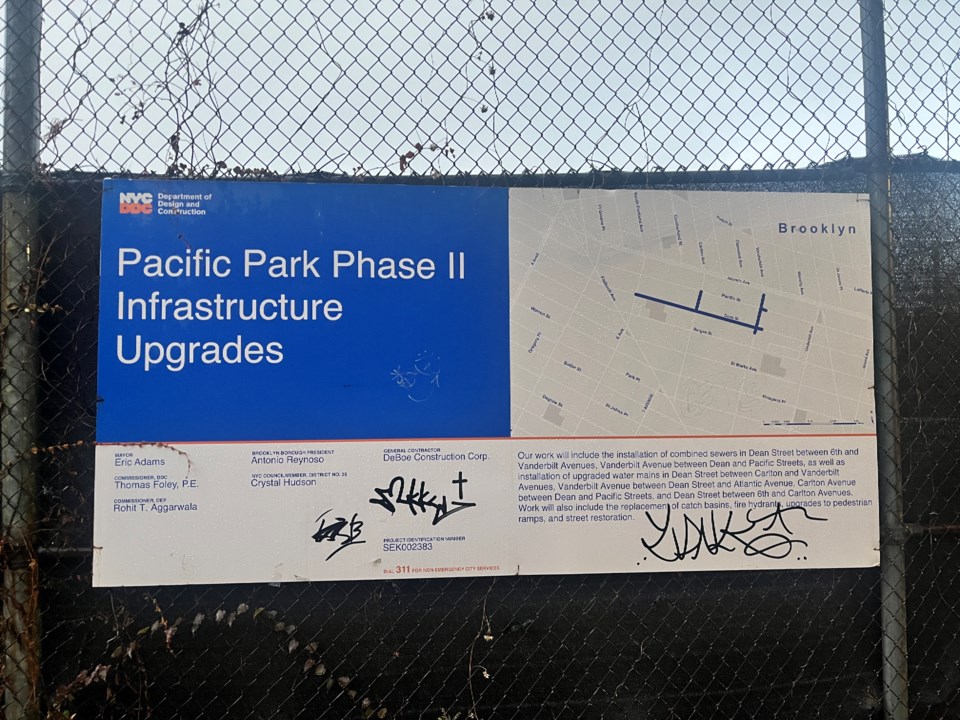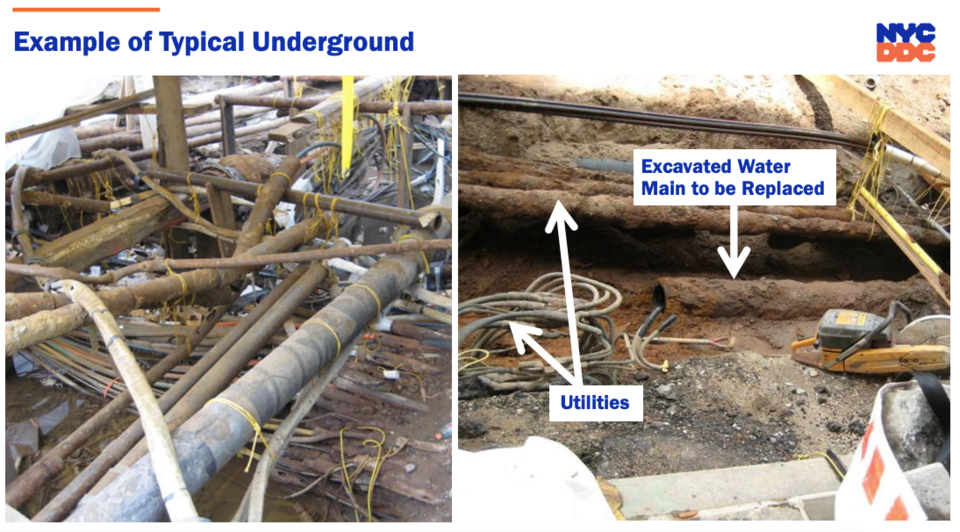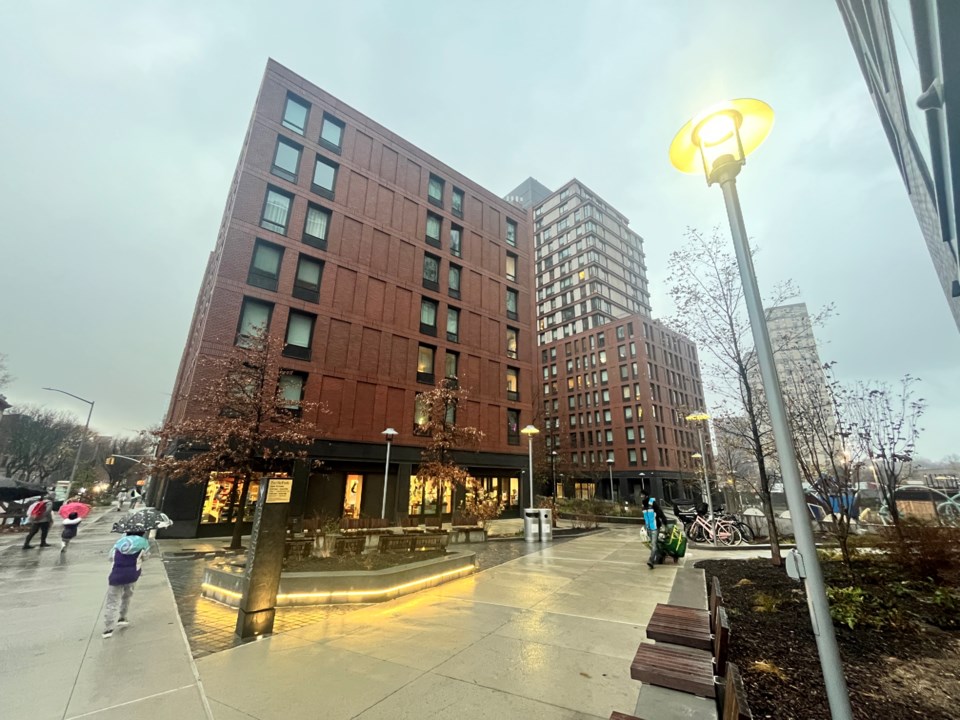On a recent cold weekday afternoon in Prospect Heights, Dean Street, between 6th and Vanderbilt Avenues, was eerily quiet- a hush that might be the perfect selling point for a realtor with a client in tow.
Oddly enough, the street should actually be noisy with a construction crew digging underground on a sewer and water main installation project that was never started and is now 15 months behind schedule, despite a lonely sign stating otherwise.
Robert Lington, a local resident, said he saw the area transform from a quaint street filled with low-rise rowhouses to morph into Pacific Park, where, so far, a total of eight buildings and more than 3,000 new homes were built in the span of two decades. He said he is extremely worried about how the city mishandles its public works projects.

“I don’t know why people always complain about the endless scaffolding in the city,” said Lington, a graphic designer. “I worry more about street projects that always seem to take forever. We keep adding housing, but we can’t upgrade our pipes? Why?”
The delay stems from the inefficient way the city, construction companies and utility providers address problems, experts suggest, postponing projects for months or even years.
It Takes Forever
Unforeseen delays are part of any infrastructure project, especially in the city with a century-old, complex underground system filled with corroded pipes, bundled wires and other utilities.

But Lington has a right to be worried, especially as the city this month approved to build about 80,000 new housing units over the next 15 years to ease the city’s housing shortage. The City of Yes housing plan comes with a $5 billion investment for what officials called “critical infrastructure upgrades.”
Despite this pledge, the majority of the city’s current capital projects are over budget and behind schedule, according to a recent analysis by State Comptroller Thomas P. DiNapoli.
Out of the more than 5,000 city projects DiNapoli looked at, 64% were delayed and defined as projects with tasks at least three months past their planned completion date. About half were excessively delayed, with tasks three or more years behind their completion date.
The Issue on Dean Street
Although the city is trying to speed up competition on its infrastructure projects, the situation on Dean Street highlights a deeper issue. It illustrates how multiple entities—such as a private contractor, a utility company, and the city—struggle to collaborate effectively and quickly to resolve problems.
When DeBoe Construction, the general contractor that won the bid for the Dean Street project, sent its crew to start work in April 2023, they found underground utilities owned by Con Edison and Verizon that blocked the firm from installing new water main and sewer pipes, according to Paul Scariano, the chief executive officer of PJS Group, which owns DeBoe.
“As soon as something comes up that slows me down or stops me, the utility must step in to remove their own stuff,” and pay for it themselves as the contract stipulates, said Scariano.
After asking both utilities to remove their assets, it took Verizon until October to remove what was in the way, while Scariano said he is still waiting for Con Edison to do its part.
“It’s absurd because this is exactly why things get stalled—we’re forced to wait,” said Scariano, noting he often resorts to sending legal letters to keep projects moving. He suspects utilities lack sufficient engineers or project managers to address issues efficiently.
Con Edison, however, pointed to the city Department of Design and Construction. “Con Edison adheres to the contracts for these projects. We are working collaboratively with NYC DDC and ready to provide any assistance requested,” the utility said in a statement.
Denisse Moreno, a DDC spokesperson, acknowledged that private utility relocation is a leading cause of delays in city infrastructure projects. She explained that the joint bidding process, which combines city and utility work under one DDC-managed contract, is meant to streamline coordination. “Without joint bidding, this work would take even longer and cost taxpayers more,” she said, adding that the agency is working to update program language.
Moreno said she expects the project to resume in January.

That said, union members have felt the brunt of these delays. “You have union guys off the job for over a year. Everyone is ready to rebuild this infrastructure that’s over 100 years old. Let’s just get it done,” said Laborers' Local 1010 Vice President Lowell Barton.
Council Member Crystal Hudson criticized the lack of proactive planning. “With the Atlantic Yards/Pacific Park plan in place for nearly two decades, there is no excuse for this,” she said.
Scariano said he is especially worried about projects in the city’s low-income areas that keep getting postponed, where equipment can sit for months, blocking the street. “These delays further disadvantage all of these communities,” that have been overlooked when resources are prioritized, he said.




